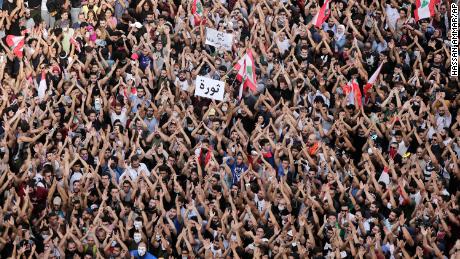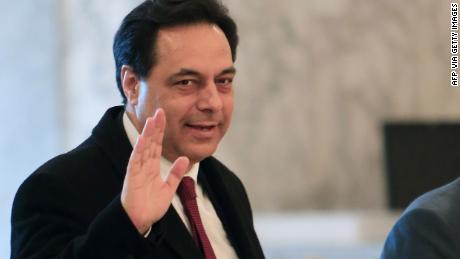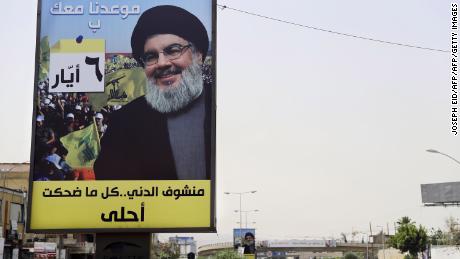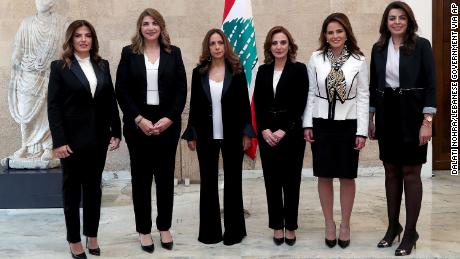"Yeah bro, but we keep forgetting to do that. Save it as a reminder," came the snarky response. Hours later, plumes of black smoke billowed over Beirut's skyline. Barricades of burning car tires cut through most of the capital's main roads and highways. Travelers arriving at Rafik el-Hariri International Airport carted suitcases past throngs of angry protesters. Breaking news bulletins screamed through radios as drivers careened through the apocalyptic scenes. "I remember going down to the streets that night and thinking 'oh my, God. It's actually happening,'" Fakih, 28, said, recalling the events of October 17 when Lebanon's anti-corruption protests kicked off. A hundred days later, Lebanon has a freshly minted government, led by non-partisan Prime Minister Hassan Diab and a cabinet of technocrats who are newcomers to the upper echelons of political power. Lebanon now has its highest-ever ratio of female ministers (six women in a cabinet of 20), including the Arab world's first female minister of defense.The government is also a third smaller than the previous one led by Saad Hariri, who resigned as prime minister less than two weeks after the protests began. At the outset, the new government formation would seem to help satisfy the demands for change. In Diab's inaugural speech, he hailed his new government as a "victory" for protesters. But the protests — which recently escalated to riots — pressed on. A day after the announcement, scores were injured in clashes between protesters and security forces, as demonstrations spread from central Beirut to the outskirts of the city. 

A cabinet independent of Iran and the US's proxy battles?
A major concern some have with the new government is that it may find itself caught up in a proxy battle between Iran and the United States. The US has deemed Hezbollah as a terror group, and may view this cabinet as one of their making."There are some ministers in this new cabinet who are great. If we had a wish-list, we would have had very similar profiles," said Nayla Geagea, a lawyer and member of Beirut Madinati, an alternative Lebanese political party."But today everyone knows that this was a government made by Hezbollah and (prominent Hezbollah political member) Jamil el-Sayyed," she said. "We know today that to prevent the collapse of the state, you need international support.""The government should be completely independent of everyone else. We can't become a scapegoat in the fight between Iran and the US today … if we still want a country called Lebanon to exist."




